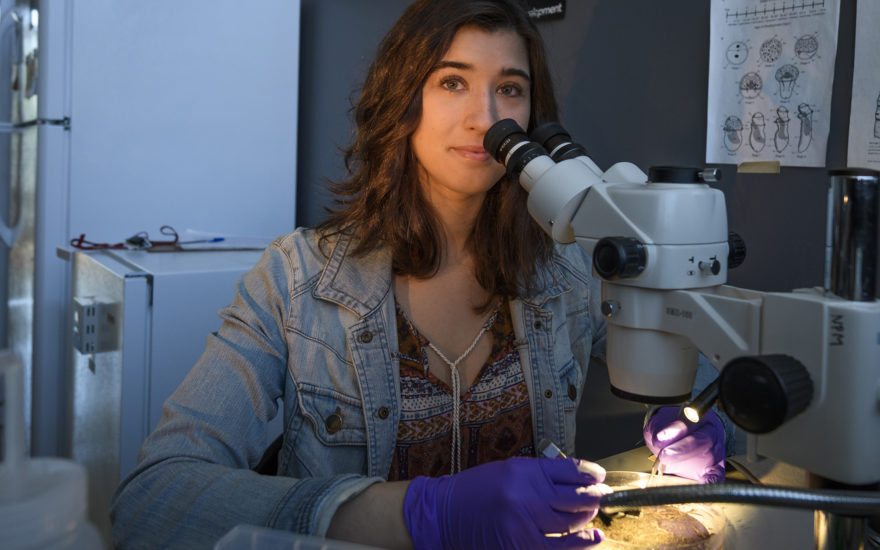Clark is committed to action-based learning, which means as an undergraduate you can join faculty and graduate students in their research. Our faculty members have research interests in subfields of biology like ecology, evolution, animal behavior, marine biology, genomics, microbiology, and more. Join other biology students — graduate and undergraduate — at weekly seminars, featuring a variety of research topics, sponsored by the Biology Department.
The opportunity to conduct research in an active laboratory can be a defining experience of your undergraduate education. Participation in research shows you real-world applications of classroom knowledge and skills, and provides an invaluable experience — whether you want to pursue a career in industry or go on to medical, veterinary, or graduate school.
You can get involved in research in different ways. You might conduct research as part of a research course or internship, or participate informally in faculty research during your spare time. You can also apply to our summer research program; typically, about a dozen students each receive a stipend of $3,000 – $3,500 to live on campus for 10 weeks while working with a specific Clark faculty member. Another option is to apply for funding to support your own research on a project of your choice during the academic year or during the summer.


